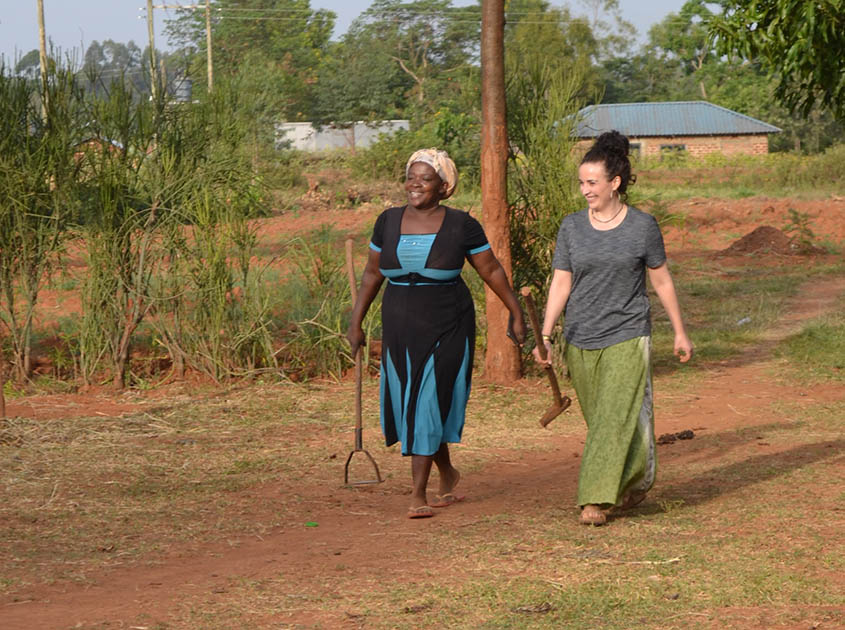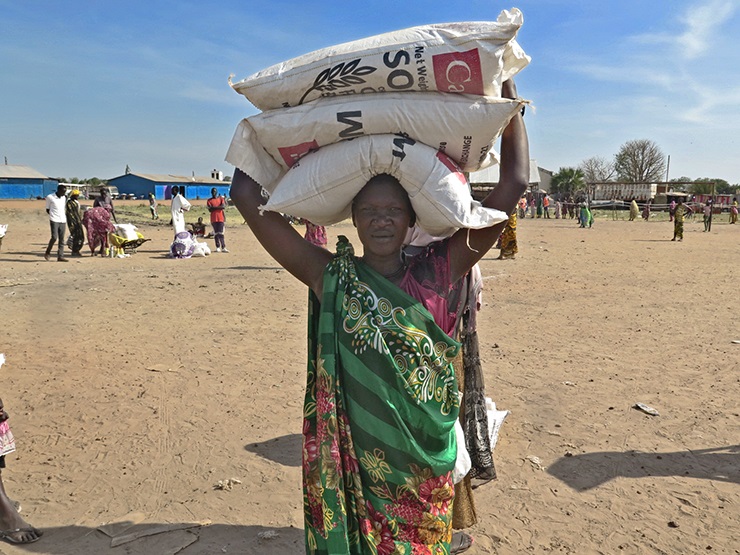(Photo: Meagan Silencieux)
Film highlights role women farmers play in ending global hunger
A short documentary featuring a Manitoba woman farmer who travelled to western Kenya to live and work alongside a Kenyan woman farmer premiered in Winnipeg yesterday—a day before World Food Day.
Colleen Dyck, a farmer and entrepreneur from Niverville, Manitoba, spent time on the farm of small-scale Kenyan farmer Lucy Anyango earlier this year. Colleen and Lucy’s experiences were documented in a short film called Common Strength, which explores the important role women farmers play to end hunger in their communities.
“So much was different in Kenya than it is here in Manitoba. For day to day life, the amount of time spent on necessities—fetching water, cooking, cleaning, feeding, sewing—left little time for other pursuits,” says Dyck.
It made me ask myself: How can I make better choices, and think more about my actions? How can I make an impact or help to educate others, and not just forget what is happening on the other side of the world?
“I saw there are social constraints and barriers for women to own land there or make decisions about what to do with the land,” she adds. “Often women will go to seminars and learn about better farming practices, but then they find it difficult to implement new practices because as a woman, they don’t have a lot of say in those matters. And if they are able to farm, they might be given a poor, small plot of land to try and prove that what they learned or know makes sense.”
Research shows that if women farmers had access to the same productive resources, such as land and seeds, as male farmers, hunger around the world would decrease by about 12-17 percent.
With support and training from Foodgrains Bank member World Renew, Anyango has transformed her small farm into something she can rely on to produce crops to sell and eat, despite erratic weather patterns. She is also sharing her newfound knowledge by training other women farmers in her community.
“Both here and there, there is a high level of respect for the land,” says Dyck. “What is different is an intimate and immediate relationship with the land and the weather because it is necessary for food and therefore survival. They don’t have the safety nets in Kenya that we have here. So when things go wrong, they can have more devastating effects, and everyone is in tune with that there.”
That’s why it’s all the more important to support small-scale farmers like Anyango, says Dyck.
“I saw firsthand what vulnerability really looks like, so I felt guilty about going back to where I am not half as vulnerable,” she says. “But it made me ask myself: How can I make better choices, and think more about my actions? How can I make an impact or help to educate others, and not just forget what is happening on the other side of the world?”
The premiere was sold out, with over 200 people filling The Park Theatre for the show.



